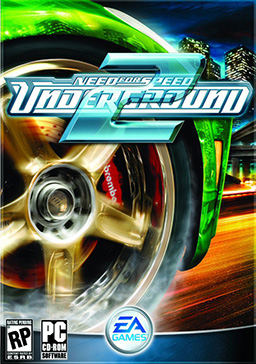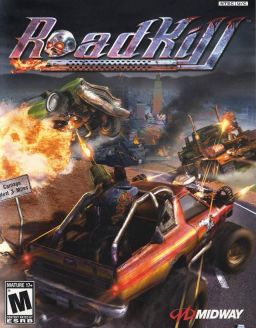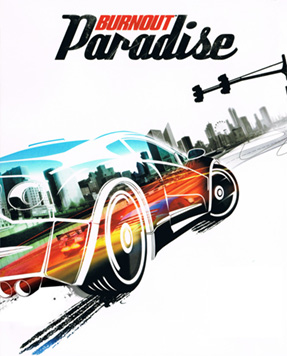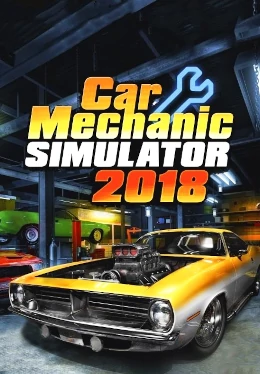Related Research Articles

The Sims 2 is a 2004 strategic life simulation video game developed by Maxis and published by Electronic Arts. It is the second major title in The Sims series, and is the sequel to The Sims. The game was released for Microsoft Windows on September 14, 2004, and a port for MacOS was released on June 17, 2005. Eight expansion packs and nine "stuff packs" were subsequently released between 2005 and 2008. In addition, versions of The Sims 2 were released on various consoles and mobile platforms, including the Nokia Ovi Store. A sequel, The Sims 3, was released in June 2009.

Pokémon Snap is a 1999 first-person photography game with rail shooter style gameplay mechanics developed by HAL Laboratory and published by Nintendo for the Nintendo 64. It was first released in Japan in March 1999 and was later released in July 1999 in North America and in September 2000 for PAL regions. It is a spin-off game in the Pokémon series, being one of the first console-based games for it, and featuring many Pokémon rendered for the first time in real-time 3D. The game was re-released for the Wii's Virtual Console in December 2007, for the Wii U's Virtual Console in 2016, and for the Nintendo Switch Online + Expansion Pack in June 2022.

Need for Speed: Underground 2 is a 2004 racing video game developed by EA Black Box and published by Electronic Arts. It is the eighth installment in the Need for Speed series and the direct sequel to Need for Speed: Underground. It was developed for Microsoft Windows, GameCube, PlayStation 2, and Xbox. Game Boy Advance and Nintendo DS versions were developed by Pocketeers, and a PlayStation Portable version, titled Need for Speed: Underground Rivals, was developed by Team Fusion. Another version for mobile phones was also developed. Like its predecessor, it was also commercially successful, selling around 11 million copies worldwide and breaking sales records in the United Kingdom.

Top Gear Rally is a 1997 racing video game developed by Boss Game Studios and released for the Nintendo 64. A follow-up to Kemco's original Top Gear game, it features a championship mode where a single player must complete six seasons of two to four races, as well as a multiplayer mode where two players may compete against each other via a split-screen display. The game's tracks combine both road and off-road surfaces and can be played in different weather conditions, including night, fog, rain, and snow. Players may customize their car with different tire grips and adjust its suspension stiffness and steering sensitivity. An option that allows players to custom paint their cars is also included.

Lego Racers is a Lego-themed racing video game developed by High Voltage Software and published by Lego Media.

Ratloop, Inc. is an American video game developer based in Houston, Texas, and founded in 1997 in Richmond, Virginia. In addition to traditional retail game products, Ratloop has also done contract work for various 3D multimedia projects such as training tools and "serious games". Their earliest work used the label "Team Epochalypse", and they also own the DBA brand "Mekada", which is oriented towards casual gamers. In 2007, Ratloop Asia Pte. Ltd. was incorporated to support a development team based in Singapore. In 2017, Ratloop Canada was incorporated.

RoadKill is an open world action-adventure video game developed by Terminal Reality and published in 2003 by Midway Games. The game has been described by Midway as "the only mission-based combat driving game set in a post-apocalyptic world".

The Sims 3 is a 2009 life simulation video game developed by the Redwood Shores studio of Maxis, and published by Electronic Arts. Part of The Sims series, it is the sequel to The Sims 2. It was released on June 2, 2009, for Mac OS X, Microsoft Windows and smartphone versions. Console versions were released for PlayStation 3, Xbox 360, and Nintendo DS in October 2010 and a month later for Wii. The Windows Phone version was released on October 15, 2010. A Nintendo 3DS version, released on March 27, 2011, was one of the platform's launch titles.

Need for Speed: ProStreet is a 2007 racing video game developed by EA Black Box and published by Electronic Arts. It is the eleventh installment in the Need for Speed series and a follow-up to Need for Speed: Carbon. Unlike its immediate predecessors, which focused on the contemporary illegal street racing scene, ProStreet focuses on legal circuit races that take place on closed tracks. The game blends elements of both sim and arcade racing games, requiring players to customize and tune cars for various race modes. Most races take place in real-world locations such as the Portland International Raceway, Mondello Park, and Autopolis.
Vehicle simulation games are a genre of video games which attempt to provide the player with a realistic interpretation of operating various kinds of vehicles. This includes automobiles, aircraft, watercraft, spacecraft, military vehicles, and a variety of other vehicles. The main challenge is to master driving and steering the vehicle from the perspective of the pilot or driver, with most games adding another challenge such as racing or fighting rival vehicles. Games are often divided based on realism, with some games including more realistic physics and challenges such as fuel management.

Burnout Paradise is a 2008 open world racing video game developed by Criterion Games and published by Electronic Arts for PlayStation 3, Xbox 360 and Microsoft Windows. It was also released on the PlayStation Store and via Xbox Live Marketplace's Games on Demand. It was later added to the libraries of Greatest Hits and Platinum Hits titles and was made backward compatible with the Xbox One in November 2016. It is the first game in the Burnout series to be released on Microsoft Windows.

The Sims is a series of life simulation video games developed by Maxis and published by Electronic Arts. The franchise has sold nearly 200 million copies worldwide, and it is one of the best-selling video game series of all time.

Project CARS is a motorsport racing simulator video game developed by Slightly Mad Studios and published and distributed by Bandai Namco Entertainment. It was released in May 2015 for Microsoft Windows, PlayStation 4, and Xbox One.

Need for Speed: Most Wanted is a 2005 open-world racing video game, and the ninth installment in the Need for Speed series. Developed by EA Canada and EA Black Box and published by Electronic Arts, it was released on November 11, 2005, for PlayStation 2, Xbox, GameCube, Nintendo DS, Microsoft Windows, Game Boy Advance and Xbox 360. An additional version, Need for Speed: Most Wanted 5-1-0, was released in the same year for PlayStation Portable. The game focuses on street racing-oriented gameplay involving a selection of events and racing circuits found within the fictional city of Rockport, with the game's main story involving players taking on the role of a street racer who must compete against 15 of the city's most elite street racers to become the most wanted racer of the group, in the process seeking revenge against one of the groups who took their car and developing a feud with the city's police department.

Real Racing 3 is a 2013 racing game developed by Firemonkeys Studios and published by Electronic Arts for iOS, Android, Nvidia Shield and BlackBerry 10 devices. It was released on iOS and Android on February 28, 2013, under the freemium business model; it was free to download, with enhancements available through in-app purchases. It was considered that it had one of the best graphical experience at that time. Over time and despite an expensive virtual economy ingame, the developers began to tolerate the use of playing with time zones in order for the players to watch unlimited ads to get free gold.

Grid Autosport is a racing video game developed by Codemasters for Microsoft Windows, PlayStation 3, Xbox 360, Linux, iOS, macOS, Nintendo Switch and Android. It is the third game in the Grid series. It aims to move the series back towards "more authentic racing games" following the release of Grid 2, which Codemasters felt was not as well-received by the company's core fanbase as it was hoped for. The developers consequently introduced major modifications to the handling model and built a lean, race-first oriented design for this title.

Skylanders: Imaginators is a 2016 toys-to-life 3D platform game developed by Toys for Bob and published by Activision. A successor to Skylanders: SuperChargers, it was released for Nintendo Switch, PlayStation 3, PlayStation 4, Wii U, Xbox 360 and Xbox One. For the first time in the series, players can create their own characters, known as Imaginators. The game received generally positive reviews but the title's sales were below Activision's expectations. It is the sixth and most recent Skylanders game released on consoles.

Car Mechanic Simulator 2015 is a simulation video game depicting the work of an automotive mechanic. It was released on 23 April 2015 for the PC, with a mobile release the following year. The game is a sequel to Car Mechanic Simulator 2014, and was followed by Car Mechanic Simulator 2018 and Car Mechanic Simulator 2021

Nintendo Labo is a toys-to-life concept developed by Nintendo and released in April 2018. Labo consists of 2 parts, where one part is a game and one part is multiple sheets of cardboard. The games come as kits that include cardboard cut-outs and other materials that are to be assembled in combination with the Nintendo Switch console display and Joy-Con controllers to create a "Toy-Con" that can interact with the included game software and vice versa. Nintendo designed Labo as a way to teach principles of engineering and basic programming.

Car Mechanic Simulator 2018 is a simulation video game developed by Polish studio Red Dot Games depicting the work of an automotive mechanic. It was released on July 28, 2017, for Microsoft Windows; in 2019 on February 15 for Nintendo Switch and June 25 for PlayStation 4 and Xbox One. A simplified version for mobile platforms was released in June 2018. The game is the third in the Car Mechanic Simulator series, following Car Mechanic Simulator 2014 and Car Mechanic Simulator 2015, the game is the predecessor of Car Mechanic Simulator 2021, which was released on August 11, 2021.
References
- ↑ "Snap-on presents Gearhead Garage: The Virtual Mechanic for Windows (2000)". MobyGames. Retrieved June 3, 2018.